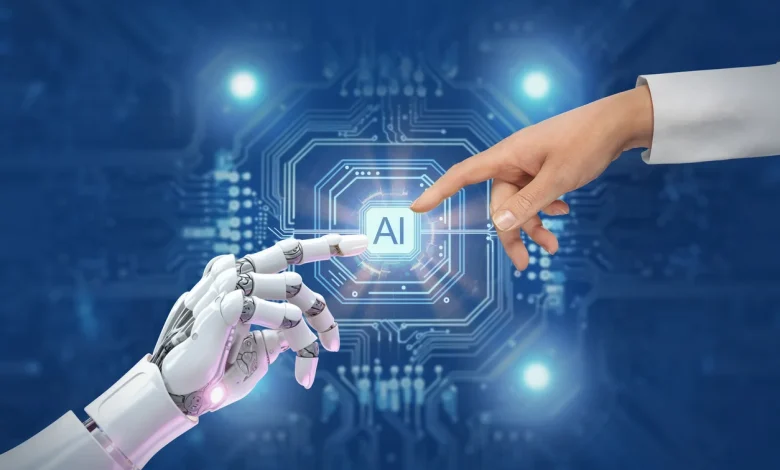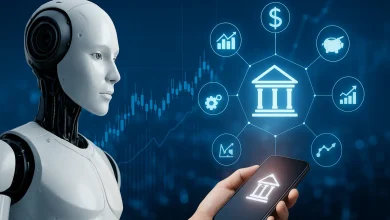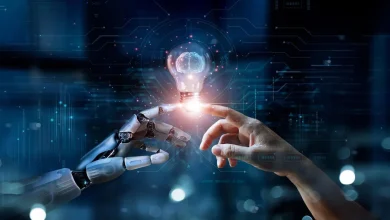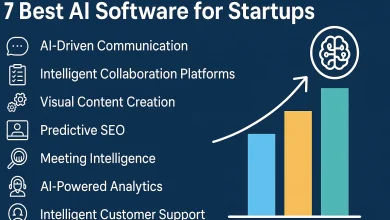AI in Marketing Automation: Strategies for 2025 Success

Introduction to AI in Marketing Automation Strategies
By 2025, ignoring the potential of AI in marketing automation strategies will be a mistake for businesses. With an ever-evolving technology, marketing tactics must also change to incorporate artificial intelligence to make work seamless, target the right audience, and improve the customer experience. Starting from data analytics through to predictive personalization, AI is the center of modern marketing automation.
Understanding AI in Marketing Automation
Artificial Intelligence computes the ways brands interact with their consumers. It makes machines capable of collecting large volumes of data, analyzing and learning from the trend of behavior, and making decisions on the go. In marketing automation, AI gives the systems superpowers beyond scheduling emails; it allows intelligent, adaptive campaigns that adapt dynamically to audience behaviors.
Key Benefits of AI in Marketing Automation Strategies
Here are some of the greatest benefits that the integration of AI into companies’ marketing workflows brings businesses, including;
- Enhanced Customer Insights: AI tools can sift through large data generated from different platforms and provide actionable insights. Marketers can learn about customer preferences, purchase patterns, and engagement trends better than ever.
- Real-Time Personalization: Rather than sending the same content to all people, AI allows for precise adaptation of messages for each user by their behavior, thus making for a higher engagement and conversion rate.
- Smarter Lead Scoring: AI algorithms determine which leads will convert the most, which enables the sales teams to work on the highest-priority prospects, therefore increasing ROI.
- Efficient Campaign Management: Form A/B testing to automated content delivery AI lowers labour by saving time and resulting in the effectiveness of campaigns.
AI-Powered Tools Revolutionizing Marketing
Marketing automation strategies in 2025 are being overtaken by several AI-fed tools:
- Chatbots & Virtual Assistants: Such AI-powered tools provide instant customer support and solve questions from FAQs to ensure a smooth guiding of users through sales funnels with no intervention of humans.
- Predictive Analytics: AI predicts the user’s behavior, based on the analysis of the data in the past, thus allowing marketers to make proactive decisions.
- Content Optimization Tools: AI recommends content subjects, formats to use, and best posting times, which enhance the maximum reach of the target audience.
Strategies to Implement AI in Your Marketing Plan
If you’re considering some marketing automation upgrade for 2025, here’s how to do it:
- Audit Existing Marketing Workflows: Once identified, the tasks that can be improved or replaced with AI tools (e.g., email campaign, lead generation, or customer segmentation).
- Choose the Right AI Tools: All tools are a good match for all businesses. Check HubSpot, Salesforce, or Marketo with AI features and see which option suits you in terms of your needs and budget.
- Invest in Data Quality: Clean, accurate data is the key to AI’s efficiency. Your CRM and analytics platforms should be working without any errors and be of the latest form.
- Test and Optimize: Begin on the small scale, check performance, and expand according to what is effective. AI learns best when tested, and for this reason, thrives best on continuous improvement.
Final Thoughts
AI in the framework of marketing automation strategies is more than a tendency; it is a necessity for all those who will be able to use this opportunity in 2025 and the far future. Using artificial intelligence, marketers can personalise agreements; increase customers’ engagement, and achieve higher return on investment. This intervention for AI is not only cost and time saving, and a competitive advantage in the current digital marketing world.



